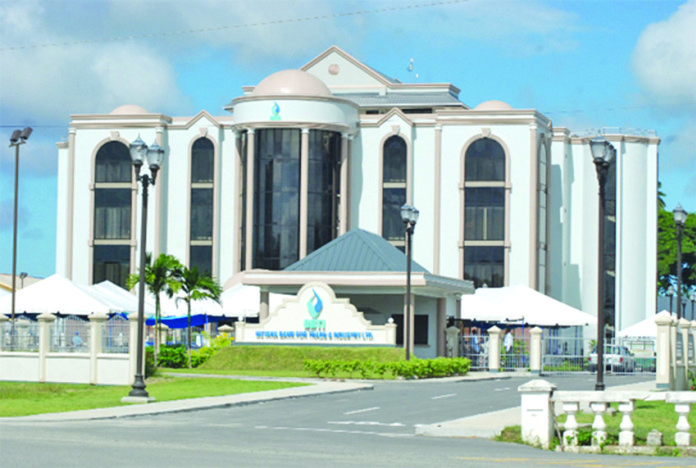GBTI after-tax profit dips at half year, Entity cites slowdown of economic activity globally
(KAIETEUR NEWS) The Guyana Bank for Trade and Industry (GBTI) recently noted in its interim report for 2019 that its performance continues to be constrained by the slowdown of economic activity globally, regionally and locally. In fact, GBTI said that for the first six months of 2019, the bank and its subsidiary recorded an after-tax profit of $545M down from $649M last year. GBTI said that this is expected to improve significantly during the next six months as some current projects come on stream.
Further to this, the financial institution said that the current political climate requires the bank to be more conservative in its approach to lending. GBTI said it hopes that these matters will soon be concluded.
With respect to oil and gas prospects for the economy, GBTI commented that these remain encouraging. Kaieteur News understands that the bank will be positioning itself to be a major player in this sector.
With respect to developments in the petroleum sector, the estimate of gross recoverable reserve of the Stabroek Block has since moved up to over six billion barrels. This was recently noted by Hess Corporation during its 2019 second quarter results.
According to the American company which has a 30 percent stake in the Stabroek Block, the oil rich offshore concession continues to see multibillion barrels of additional exploration potential. Significantly, it noted that the upgraded estimate shows that Hess’ portfolio is on track to generate industry leading cash flow growth and increasing returns to shareholders.
Hess also noted that the second phase of the Liza Field was sanctioned by its other two partners, ExxonMobil and CNOOC/NEXEN, following regulatory approval from the government of Guyana.
In addition to this, the firm said that Liza Phase Two will utilise the Liza Unity FPSO, which will have the capacity to produce up to 220,000 gross barrels of oil per day. It said that six drill centres are planned with a total of 30 wells, including 15 production wells, nine water injection wells, and six gas injection wells.
The company noted that first oil is expected by mid-2022 and the development is expected to have a gross capital cost of approximately $6 billion, including a lease capitalisation cost of approximately $1.6 billion for the FPSO, and will develop approximately 600 million barrels of oil.
Excluding pre-sanction and lease costs, the corporation said its net share of development costs is forecast to be approximately $1.6 billion, of which $210 million is included in its 2019 capital and exploratory budget.





